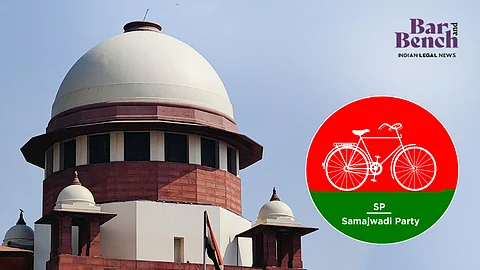The Supreme Court on Monday refused to entertain Samajwadi Party’s petition challenging its eviction from a municipal property in Pilibhit, remarking that the office allotment was a product of political misuse and muscle power [The Samajwadi Party v. State of UP & Anr].

